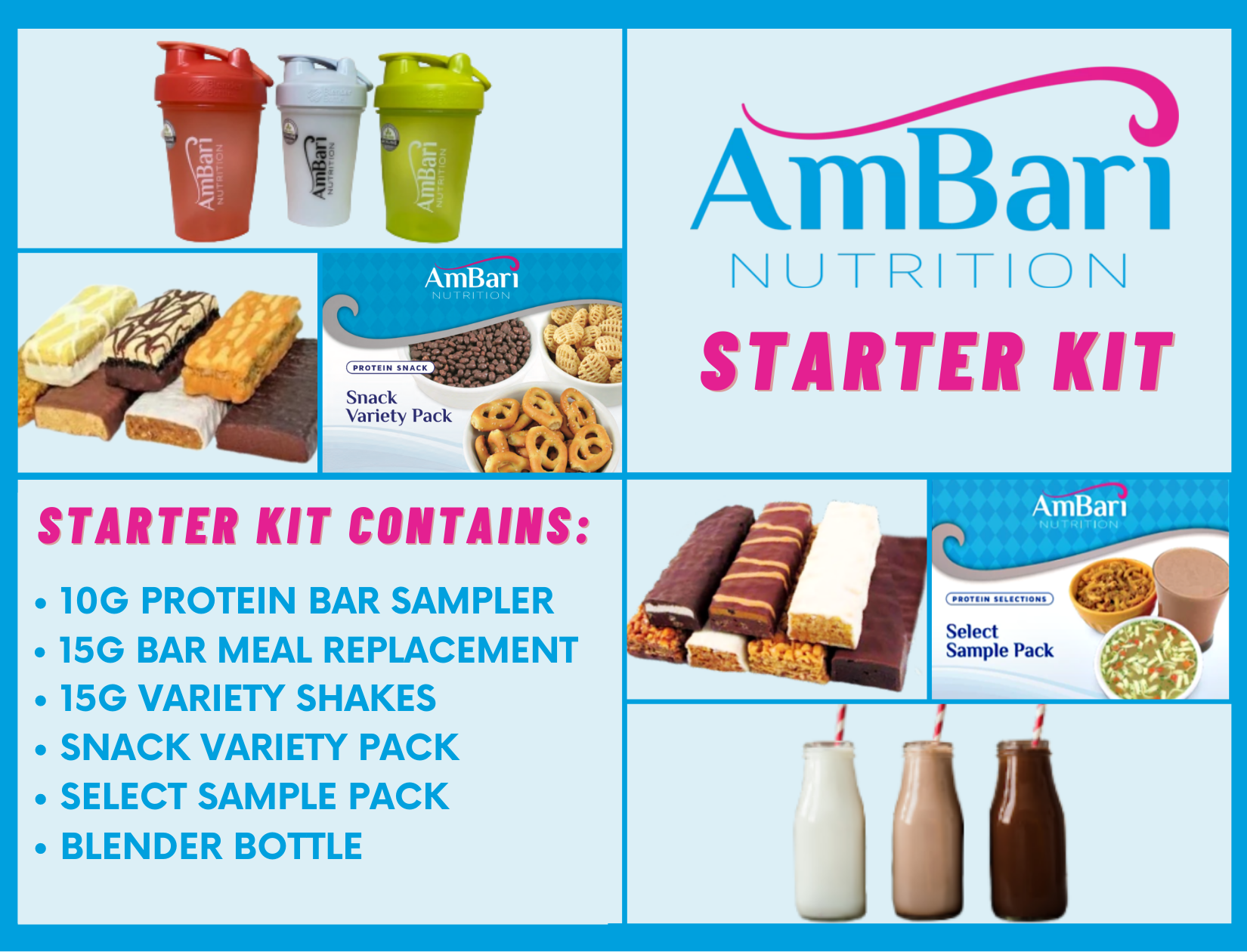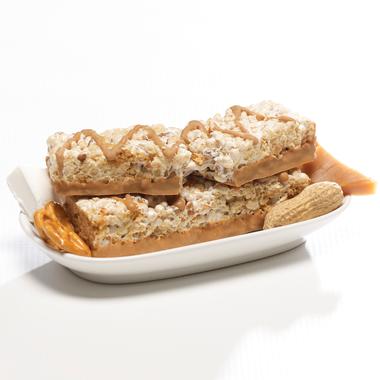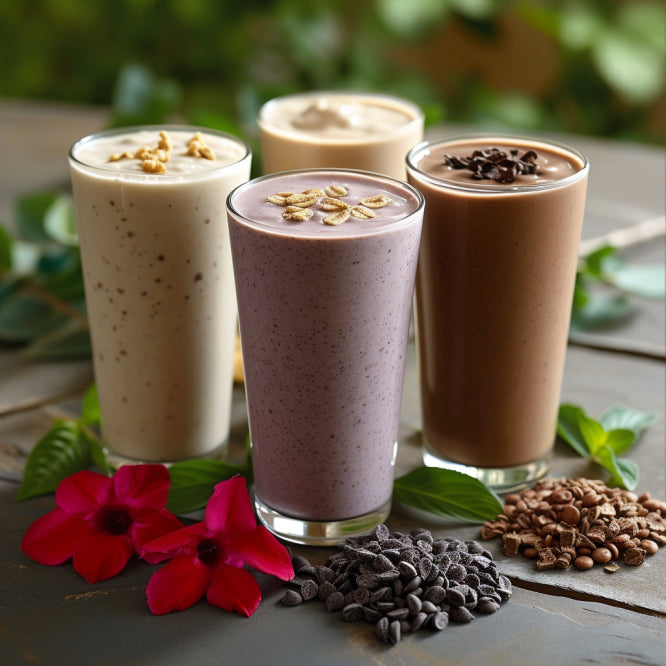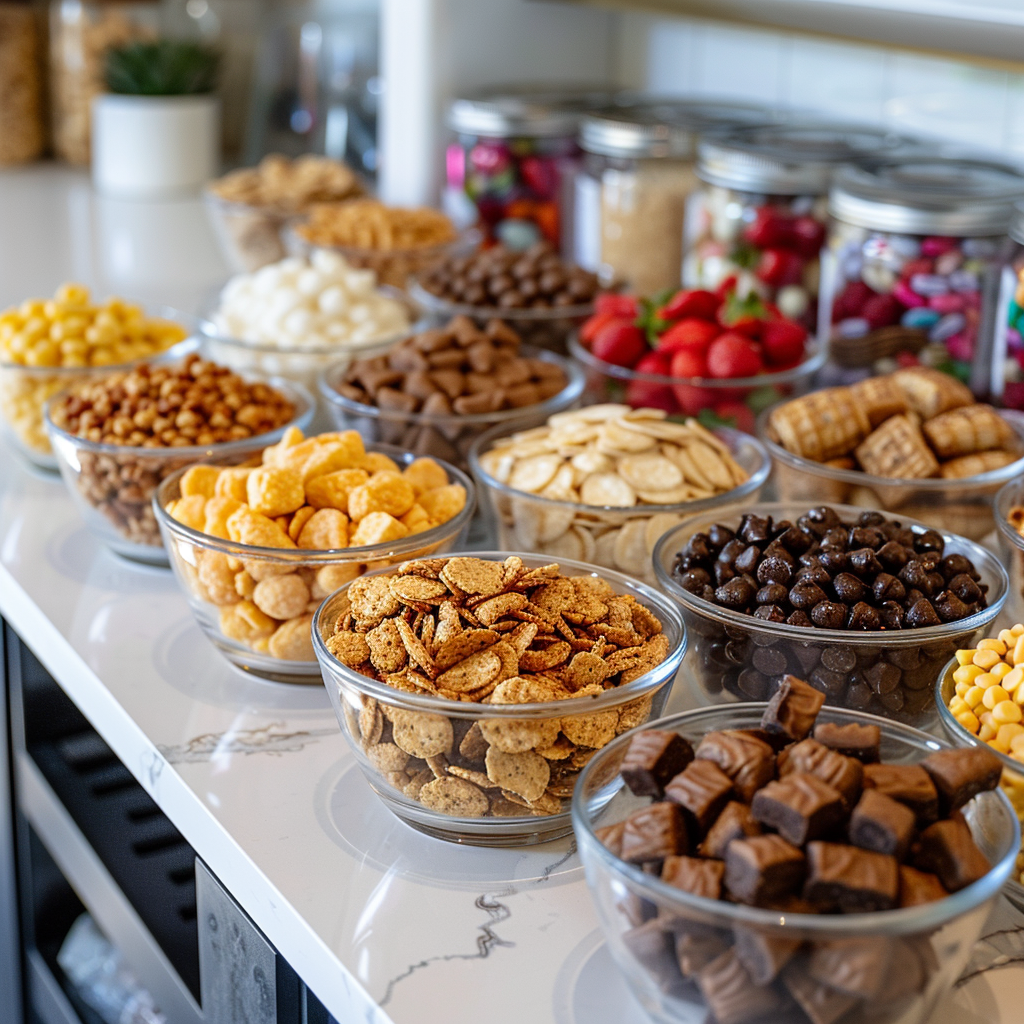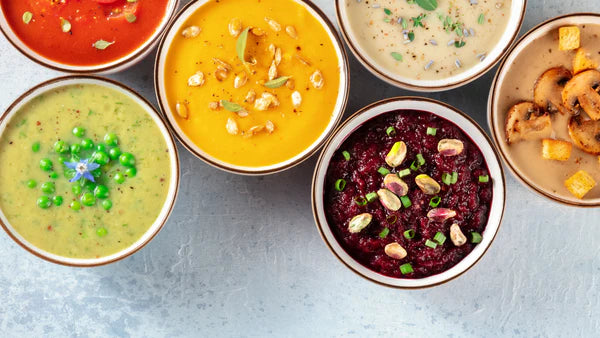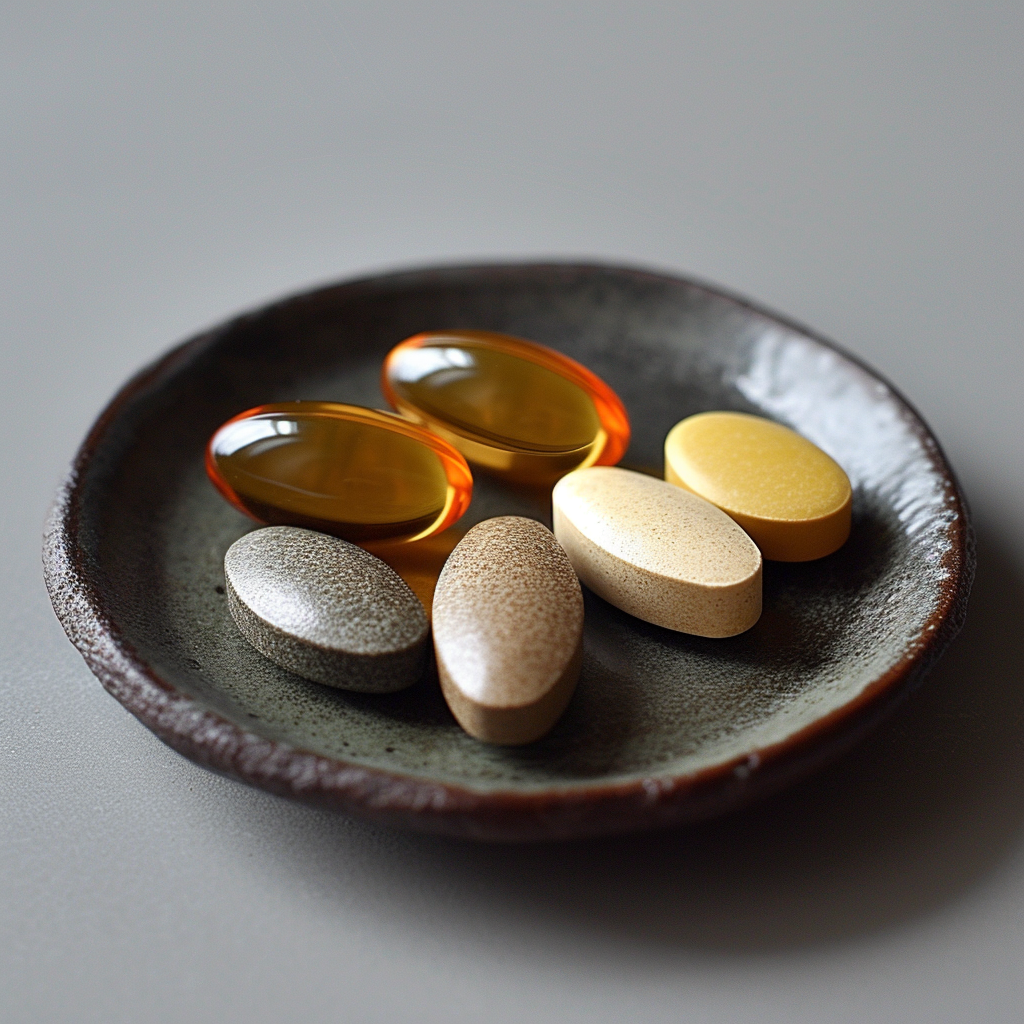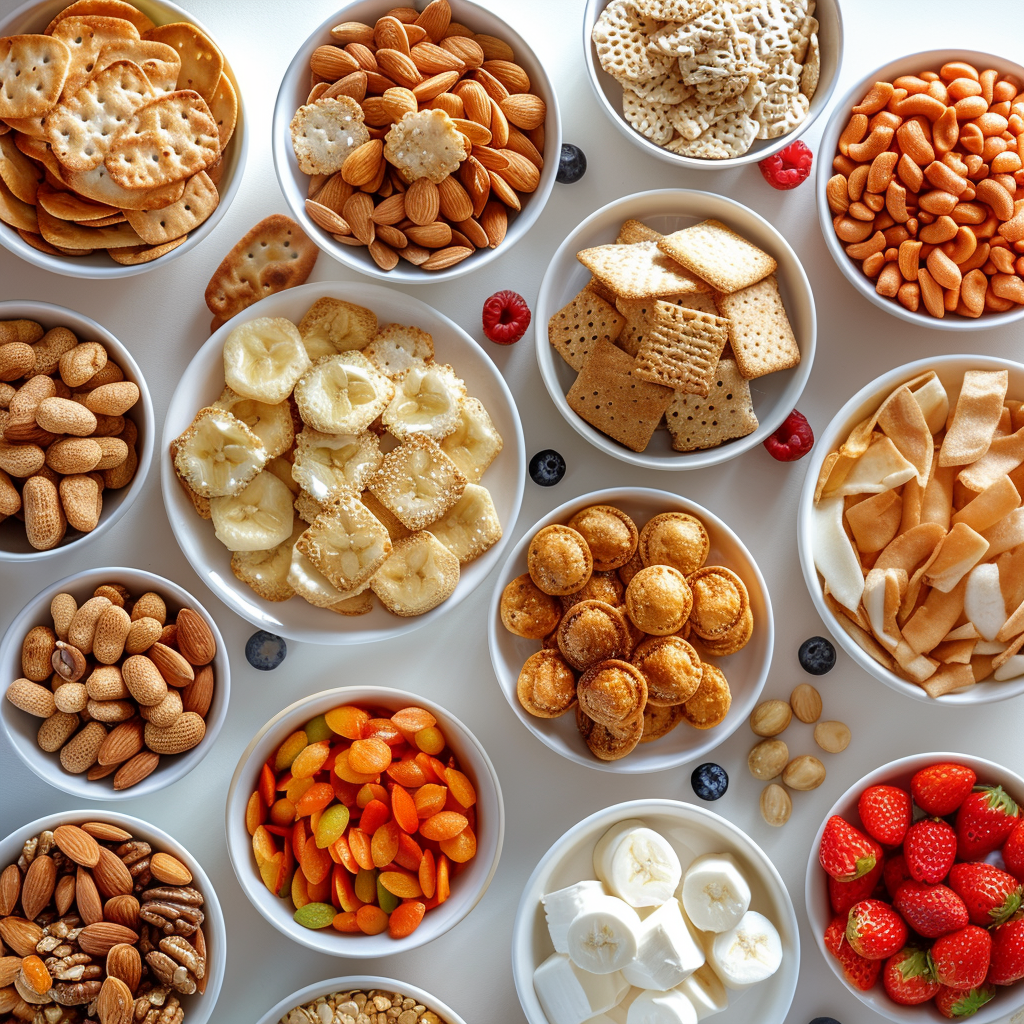Menu
Your cart is empty
Looks like you haven't added anything to your cart yet
7 Day Sample Bariatric Meal Plan
After weight loss surgery, following a strict meal plan is so important to meet nutrition needs while achieving successful long-term weight loss.

The goals of bariatric diet plans are to provide adequate protein, keep calories low, limit portions, and avoid dumping syndrome. Patients need 70-90g of protein daily to help maintain muscle mass as the body loses weight. Around 1200 calories daily promotes steady weight loss. Small, frequent meals are easier to digest and prevent overeating. Low fat, low sugar foods are less likely to cause dumping syndrome, which happens when food moves too quickly from the stomach into the small intestine.
This 7-day sample meal plan is designed for bariatric patients who have already progressed through the initial diet stages after surgery (clear liquids > pureed foods > soft foods > solid foods). At this point, the patient can follow a balanced meal plan with a variety of foods that meet the goals of a post-bariatric diet. With its careful calorie and protein totals, this meal plan aims to support optimal health and weight loss success after gastric bypass or gastric sleeve surgery.
7 Day Bariatric Meal Plan

Here is a standard 7-day, 1200 calorie, bariatric sample meal plan:
Day 1:
Breakfast: 2 eggs scrambled with 1 oz low-fat cheese, 1/2 cup egg whites (200 cal, 20g protein)
Snack: 1 serving Lemon Creme protein pudding (80 cal, 12g protein)
Lunch: Tuna salad with 3 oz tuna, 1 tb mayo, mustard, diced celery on lettuce (250 cal, 30g protein)
Snack: 1 part-skim mozzarella cheese stick (80 cal, 7g protein)
Dinner: 3 oz grilled chicken breast, 1/2 cup roasted Brussels sprouts (250 cal, 30g protein)
Snack: 1/2 cup sugar-free jello with whipped topping (80 cal)
Total: 1140 calories, 99g protein
Day 2:
Breakfast: Protein pancakes made with 1 scoop protein powder, 1 egg white, 1/4 cup oats (250 cal, 20g protein)
Snack: Numetra's Chocolate Banana Frappe (200 cal, 27g protein)
Lunch: Veggie burger on lettuce bun with sliced tomato, onion, mustard (300 cal, 15g protein)
Snack: 15 almonds (100 cal)
Dinner: 3 oz baked cod, 1/2 cup roasted cauliflower (200 cal, 22g protein)
Snack: 1/4 cup cottage cheese with cinnamon (110 cal, 15g protein)
Total: 1160 calories, 89g protein
Day 3:
Breakfast: Veggie omelet with 1 egg, 2 egg whites, spinach, mushrooms (200 cal, 15g protein)
Snack: 1 serving Chike Iced Coffee protein shake (120 cal, 20g protein)
Lunch: Chicken salad made with 3 oz chicken breast, 1 tb light mayo, celery, apples (250 cal, 25g protein)
Snack: Sugar-free jello with whipped topping (80 cal)
Dinner: 3 oz salmon baked with lemon, 1/2 cup roasted zucchini (250 cal, 22g protein)
Snack: 1 part-skim mozzarella cheese stick (80 cal, 7g protein)
Total: 1180 calories, 89g protein
Day 4:
Breakfast: 1/2 cup greek yogurt with berries and almonds (150 cal, 15g protein)
Snack: 1 hardboiled egg (80 cal, 7g protein)
Lunch: Numetra Buffalo Chicken Soup (160 cal, 20g protein)
Snack: Cucumber slices with 2 tbsp hummus (150 cal, 5g protein)
Dinner: 3 oz sirloin steak, 1/2 cup mashed cauliflower (250 cal, 25g protein)
Snack: 1 bag Proti Chips crispy protein chips (130 cal, 12g protein)
Total: 1160 calories, 92g protein
Day 5:
Breakfast: 1/2 cup cottage cheese with berries (140 cal, 15g protein)
Snack: 1 Proti Wafer Protein Square snack (200 cal, 15g protein)
Lunch: Tuna salad wrap made with 3 oz tuna, lettuce, tomato, mustard (280 cal, 30g protein)
Snack: Sugar-free jello cup (35 cal)
Dinner: Veggie burrito bowl with rice, beans, salsa (300 cal, 15g protein)
Snack: 1 string cheese (80 cal, 7g protein)
Total Calories: 1190 Total Protein: 94g
Day 6:
Breakfast: Veggie omelet with 1 egg, spinach, onion, tomato (180 cal, 15g protein)
Snack: 1 cup watermelon cubes (80 cal)
Lunch: Black bean soup (250 cal, 15g protein)
Snack: 15 wheat crackers (120 cal, 3g protein)
Dinner: 4 oz grilled shrimp skewers, side salad with vinaigrette (250 cal, 24g protein)
Snack: Caramel Crunch protein bar (170 cal, 15g protein)
Total Calories: 1150 Total Protein: 72g
Day 7:
Breakfast: 1/2 cup oatmeal cooked in skim milk with cinnamon (220 cal, 10g protein)
Snack: 1 hardboiled egg (80 cal, 7g protein)
Lunch: Numetra's Lemon Meringue Shake (160 cal, 20g protein)
Snack: 1 oz nuts (170 cal, 5g protein)
Dinner: 3 oz grilled flank steak, 1/2 cup roasted broccoli (250 cal, 25g protein)
Snack: Sugar-free fudgsicle (60 cal)
Total Calories: 1140 Total Protein: 91g
Bariatric Diet Meal Plan Guidelines
It is important to follow certain meal planning guidelines after bariatric surgery to promote weight loss:
- Stick to 3 small meals and 2 bariatric friendly snacks per day. Patients should eat about every 3 hours to maintain healthy blood sugar levels. Small, frequent meals also prevent overeating.
- Focus on protein at each meal. Getting 70-90g of protein daily helps maintain muscle mass as rapid weight loss occurs. Excellent protein sources include eggs, Greek yogurt, cottage cheese, tuna, salmon, chicken breast, and lean meats. You can also incorporate high protein meal replacements like bariatric protein bars and the best bariatric protein shakes.
- Limit carbs to 1/4 of the plate, emphasizing non-starchy vegetables. Starchy foods like grains, breads, pasta, and rice can hinder weight loss. Fill half the plate with low-carb veggies to provide volume and nutrients. Good choices are leafy greens, broccoli, cauliflower, carrots, peppers, and green beans. Check out our list of bariatric-friendly recipes to help with meal prep.
- Stay hydrated with at least 64 ounces of fluids per day. Drinking adequate water, unsweetened tea, broth, and other low-calorie beverages prevents dehydration. Fluids also aid digestion and prevent constipation.
- Avoid high fat, high sugar foods. These calorie-dense foods can slow weight loss. Opt for bariatric foods such as low-fat dairy, lean proteins, whole grains, and produce. Limit added sugars, fried items, heavy sauces, and sweet treats.
- Take vitamins and supplements as recommended. Bariatric surgery can make it harder to absorb some nutrients. Doctor-recommended daily vitamins and minerals prevent nutritional deficiencies. Common supplements include bariatric multivitamins, calcium, iron, vitamin B12, and vitamin D.
Further Reading
For those looking to manage their weight through convenient options, meal replacement shakes can be a great solution. To help you make an informed choice, check out this detailed guide on the Top 10 Meal Replacement Shakes for Weight Loss. The article offers insights into what to look for in a shake, from protein content to vitamins and minerals, and even ranks the top 10 options based on nutritional value and customer reviews.
Author: Carrie H. Carrie is a passionate health and nutrition writer who transforms complex medical research into accessible, evidence-based content to empower readers to make informed choices about their wellbeing. With a background in science and a dedication to helping others live healthier lives, she provides thoughtful analysis of the latest studies and practical, actionable advice readers can apply to their own lives. |
Reviewed By: Dr. Kevin Huffman Dr. Huffman is an accomplished board-certified bariatric physician with extensive clinical experience and expertise in treating obesity. He has trained countless healthcare providers and founded American Bariatric Consultants to develop highly sought-after protocols, training materials and continuing education used widely by medical societies, hospitals and physicians. Dr. Huffman's impact reaches far beyond direct patient care, as he actively prepares the next generation of physicians to achieve board certification in bariatrics, thereby exponentially expanding access to this vital medical treatment. |
- Choosing a selection results in a full page refresh.


